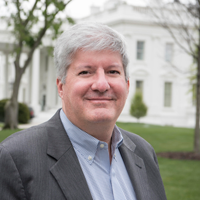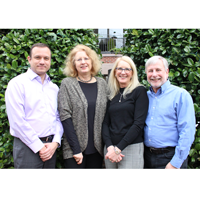2017 CRA Distinguished Service and A. Nico Habermann Awardees Announced
The CRA board of directors is pleased to announce its selections for the 2017 CRA Awards.

Tom Kalil – Distinguished Service Award Winner
Former Deputy Director for Technology and Innovation, White House Office of Science and Technology Policy

Carol Frieze – A. Nico Habermann Award Winner
Director of SCS4ALL and Women@SCS, Carnegie Mellon University (CMU)
Carol Frieze was selected as the recipient of the 2017 A. Nico Habermann Award Winner for devoting nearly two decades to promoting diversity and inclusiveness in computing. She has worked with and supported a wide variety of students including women, people with disabilities, and various age groups ranging from K-12 to graduate students.
Carol has contributed valuable research towards understanding the challenges diverse populations face, and in many ways, her research has challenged the existing narrative in the field. And it’s had impact: 48% of computer science majors in the 2016 incoming freshman class at CMU are women, far above the national average. Her work towards improving diversity and inclusion in computing goes well beyond advocacy. Carol has shared her knowledge with others by developing teacher resources, books, and course materials. She also participates in conferences and other programs including CRA-Women’s Collaborative Research Experiences for Undergraduates.
Carol’s nomination letters attest that she played an important role in creating an inclusive environment at CMU, and her research can help others learn best practices and insights to help spread this type of progress beyond her home institution to the entire community.



